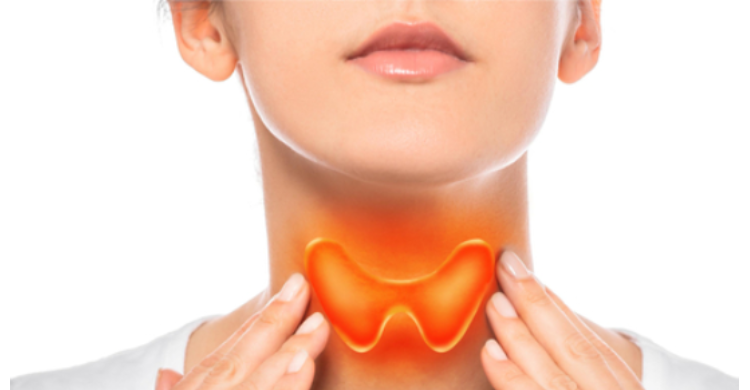

Thyroid Diseases


Best Thyroid Diseases Treatment in Bibwewadi ,Pune
What is thyroid ?
The thyroid gland is a butterfly-shaped organ located at the base of the neck. During this process, hormones are released that control metabolism-the way your body uses energy. Among the functions regulated by thyroid hormones are: heart rate, breathing, body temperature ,etc.
Thyroid function: what is it?
Your thyroid controls your metabolism by releasing and controlling thyroid hormones. Metabolism is the process of converting food into energy. It is used throughout your entire body to keep many of your body's systems functioning properly. Assume that your metabolism is a generator. In order to control your metabolism, the thyroid produces two specific hormones - T4 (thyroxine, which contains four iodide atoms) and T3 (triiodothyronine, which contains three iodide atoms). Cells in the body use these hormones to determine how much energy they should use. They are produced by the thyroid.
What are thyroid diseases?
A medical problem that prevents your thyroid from producing the appropriate amount of hormones is known as thyroid disease . Your thyroid produces the hormones necessary to keep your body operating normally. Your body uses energy too quickly when the thyroid produces excessive thyroid hormone. It is known as hyperthyroidism. More than just making you fatigued, using energy too quickly can also make your heartbeat quicker, make you lose weight unintentionally, and even make you feel anxious. Contrarily, your thyroid may produce too little thyroid hormone. It is known as hypothyroidism. When your body produces too little thyroid hormone, it can cause you to feel exhausted, put-on weight, and even intolerable to low temperatures.
What causes thyroid diseases?
Hypothyroidism and hyperthyroidism are the two major thyroid disorders. There are other diseases that can affect the thyroid gland, causing both conditions.You can consult the thyroid doctor, Dr. Dnyanesh Umalkar for the best thyroid treatment in Bibwewadi, Pune .
Graves’s disease: A condition in which excess thyroid is produced.
Toxic adenomas: A condition in which nodules are developed in the thyroid leading to chemical imbalance.
Subacute thyroiditis: A condition in which the thyroid is inflamed.
Pituitary gland malfunctions
Hypothyroidism is because of the low production of thyroid hormones. It is also caused by:
Hashimoto’s thyroiditis: An autoimmune condition of the thyroid leading to the death of the cells.
What are the symptoms of thyroid disease?
The common symptoms of hypothyroidism are:
Fatigue
Obesity
Dry and coarse hair
Heavy and frequent menstrual cramps
Hoarse voice
Very sensitive to low temperatures.
The common symptoms of hyperthyroidism are:
Experiencing anxiousness, irritation, and anxiety.
Unable to fall asleep.
Losing weight.
Having a goiter or an enlarged thyroid gland
Having tremors and weakness in the muscles
Irregular menstrual cycles
Feeling heat sensitive
Having visual issues or irritated eyes
Does diabetes increase my risk of thyroid disease?
Diabetes puts you at a higher risk of thyroid disease than people without diabetes. An autoimmune disorder, type 1 diabetes is characterized by insulin resistance. You are more likely to develop another autoimmune disorder if you already have one.
Type 2 diabetes patients are at a lower risk, but they are still at risk. You are more likely to develop thyroid disease if you have Type 2 diabetes.
How is thyroid disease diagnosed?
Because the symptoms of thyroid disease are sometimes mistaken for those of other conditions, diagnosing it can occasionally be challenging. When you age or are pregnant, you might have symptoms that are comparable to those you would have if you had thyroid illness. Fortunately, there are tests that can assist in determining whether the origin of your symptoms is a thyroid problem. These tests are:
blood tests
imaging exams
medical examinations
How is thyroid disease treated?
The treatment goal is to get your hormone levels normal. For hyperthyroidism, treatment strategies include the usage of anti-thyroid drugs, beat blockers, and surgery. Hypothyroidism is mainly treated by thyroid replacement medication.
What are the times when you should consult a specialist?
The moment you experience any of these symptoms, you should consult a specialist for the right thyroid treatment in Pune.
Loss/gain of weight
Irritability, nervousness, and anxiety
Periods that are irregular or heavy
It is extremely critical to consult a specialist if you experience any of the above symptoms.
Quick Contact
Our Services
Skin
Hair
Laser
Cosmetic
Sliming
Prebridal
Anti Aging
Address: Shop No 71, 1st floor, lighthouse Mall, Bibwewadi, Opposite to Suryaprabha Garden Society, Bibwewadi, Pune, Maharashtra 411037
Phone No. : 09422926267
09763662255
Email : dsumalkar@gmail.com
© 2025. All rights reserved.


Health and Wellness Programs
Diabetes
Wellness And Lifestyle Management
Urinary and Digestive
Preventive Health Care
Chronic Disease Management
Acute Disease
Thyroid Diseases
Viral Infection
